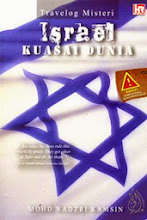The No. 4's Sustainable Development Goals is on quality education. The goal aims to ensure inclusive and equitable quality education and promote lifelong learning for all. Providing quality education access for Orang Asli (aborigines) in Perak is in-line with this SDG.
Based on research conducted by Sultan Idris Education University of Malaysia, the education level and achievement of Orang Asli is by ethnic comparison, the most left behind. This is due to the fact that they live in isolated places far from economic activity center, the far distance between school and home, absent of transportation facilities and ongoing poverty problem. All these inter-link factors have contributed to low attendance of Orang Asli in school and low academic achievements. The situation is getting worse as the facilities in schools are not up to the national standard and the teachers are not fully committed to teaching as most of them are young inexperienced teachers. As a result of this misery, Only 30% of Orang Asli children completed their primary education. Most of them are not motivated to pursue their secondary education.
(source: http://jpbu.upsi.edu.my/images/Jurnal.Vol6.Siri5/PB22.pdf)
Basically, there are two main problems that need be addressed here. First is the lack of physical infrastructure. Second is the lack of motivation among teachers and Orang Asli themselves in improving the education status.
Perak under the administration of YAB Menteri Besar, Dato' Seri Zambry Abd Kadir has successfully achieved surplus state budget since year 2009 through its effective governance and tax system administration although initially on each annual budget it was presented as deficit.
(source: http://www.thestar.com.my/news/community/2014/12/10/dr-zambry-surplus-budget-possible-he-says-economic-landscape-continues-to-be-encouraging/). This accumulated surplus can be partly used as Domestic Resource Mobilization (DRM) to build more roads that connects orang Asli settlement with schools. As building roads involve millions in ringgit (RM) and taking into consideration that state's coffers is quite limited, the state government could source through loan borrowed from the Malaysia's pension funds known as KWSP. As for the school facilities, it is recommended that the state government seeks some allocation from the Federal Government to upgrade those facilities. The state government could contribute about 20% of money (budget commitment) and the remaining 80% could be sourced from the Federal government. Rather than spend a one time lump sum of money from state's fund to finance the infrastructure development for Orang Asli, it is more financially viable to source from other alternatives such as above examples. The state government is recommended to seek advice on knowledge and technical service from International Bank for Reconstruction and Development (IBRD) of the World Bank, one of the Multilateral Development Bank (MDB) on building roads in isolated places and construct schools that can accommodate the needs of delivering quality education for aborigines.
In addressing the lack of motivation problem, the state government is recommended to work with the Association of Aborigines of Peninsular Malaysia (POASM), an NGO representing Orang Asli in organizing interactive program conducted on each Orang Asli's settlements to hear, listen and provide them with the vital information on what are the things the state government want to do to help them and the importance of education . The involvement of POASM is crucial as they are the ones who can speak the same level of language and communication with Orang Asli. The fund to organize such engagement program could be sourced from dedicated international grant available such as World Bank through its Grant Facility for Indigenous Peoples.













